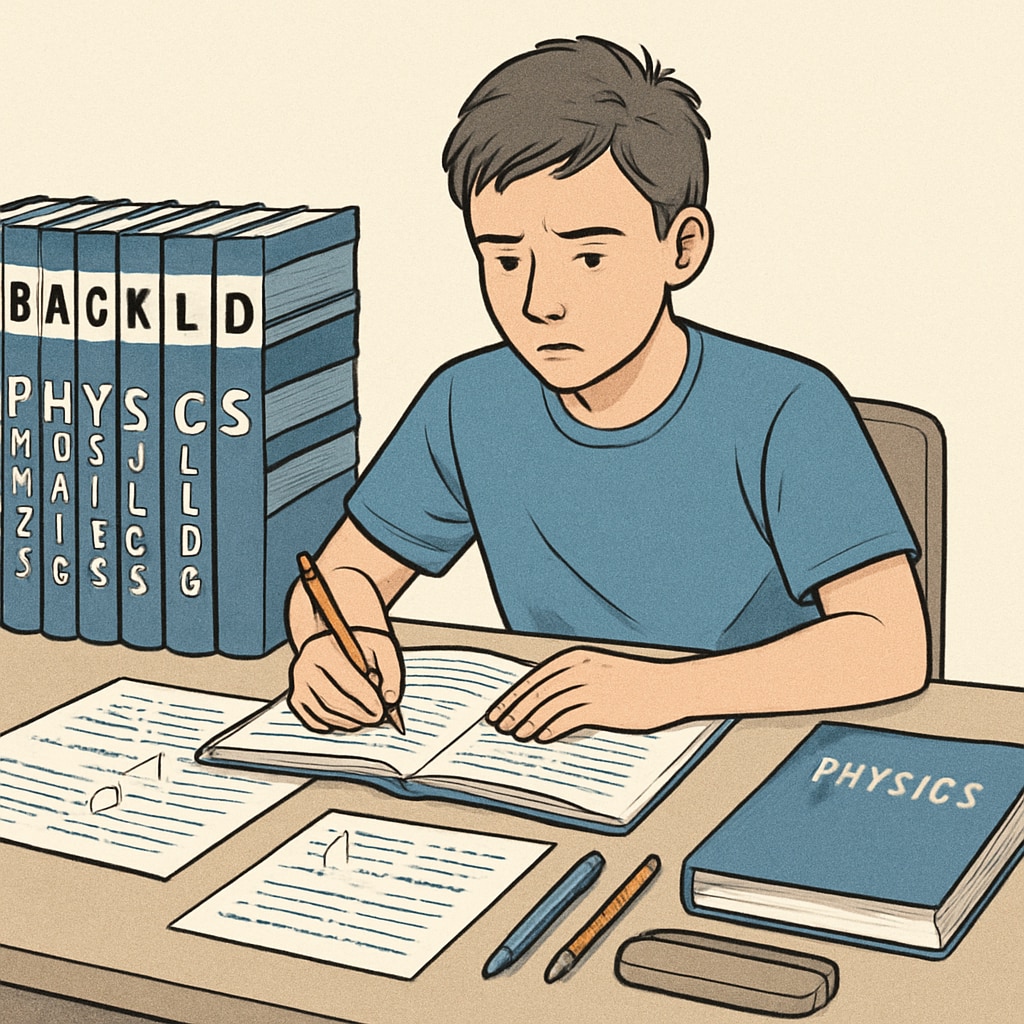For many students pursuing BSc Physics, backlogs can become a major hurdle, especially when time and resources are limited. These backlogs not only impact academic performance but also lower confidence and motivation. However, with the right time management strategies and learning techniques, you can overcome these challenges and make significant progress in clearing your physics backlogs.
Understanding the Root Causes of Backlogs
Before diving into solutions, it is essential to identify the reasons behind your backlogs. Common causes include:
- Poor time management and procrastination
- Difficulty grasping fundamental physics concepts
- Over-reliance on last-minute cramming
- Balancing multiple subjects and extracurricular commitments
Recognizing these factors allows you to tailor your approach and focus on areas that need the most improvement.

Prioritizing Your Physics Topics
One of the most effective ways to handle backlogs is by prioritizing topics. Not all physics chapters carry the same weight in exams or require equal effort. Use the following steps to create a priority list:
- Identify high-weightage topics based on your syllabus or past exam papers.
- Focus on foundational concepts that serve as building blocks for advanced topics.
- Mark chapters you find personally challenging and allocate extra time for them.
For example, if you’re struggling with mechanics, mastering it first can simplify related topics such as rotational dynamics.
Time Management Techniques for Clearing Backlogs
Time is often the scarcest resource when dealing with backlogs. Here are some proven strategies to make the most of it:
- Set Realistic Goals: Break your syllabus into manageable chunks and assign specific deadlines for each.
- Use Time Blocks: Dedicate focused, uninterrupted time slots for studying physics. The Pomodoro Technique can be an excellent tool for this.
- Eliminate Distractions: Turn off unnecessary notifications and find a quiet study environment.
By staying disciplined and adhering to your schedule, you can gradually reduce your backlog without feeling overwhelmed.

Leveraging Resources and Study Aids
In the modern era, students have access to a plethora of resources to aid their learning. Utilize a mix of the following:
- Textbooks and Notes: Review your class notes and reference standard textbooks like Halliday, Resnick, and Walker for detailed explanations.
- Online Platforms: Websites like Khan Academy and Coursera offer free and paid courses tailored to physics students.
- Group Studies: Collaborate with peers to solve problems and clarify doubts.
Combining traditional and digital resources ensures a well-rounded understanding of concepts.
High-Efficiency Learning Techniques
Efficiency is key when time is limited. Adopt these techniques to maximize your learning output:
- Active Recall: Test yourself on concepts instead of passively re-reading notes.
- Spaced Repetition: Review topics at regular intervals to reinforce memory.
- Practice Problems: Solve a variety of numerical problems to build confidence and application skills.
In addition, prioritize understanding over rote memorization, as physics often requires conceptual clarity.
Building and Sustaining Momentum
Clearing backlogs is a marathon, not a sprint. To maintain momentum:
- Track Progress: Regularly assess how much of your backlog has been cleared.
- Celebrate Milestones: Reward yourself for achieving significant goals to stay motivated.
- Stay Healthy: Ensure you get enough sleep, eat well, and exercise to keep your mind sharp.
Remember, consistency and perseverance are your greatest allies in overcoming academic challenges.
In conclusion, tackling BSc Physics backlogs may seem daunting, but with effective time management, prioritization, and smart learning strategies, you can achieve your goals. Start small, stay focused, and celebrate your progress along the way. With determination, you’ll not only clear your backlogs but also regain confidence in your ability to excel in physics.
Readability guidance: Each section is concise and actionable, with lists used to break down complex ideas. Overuse of passive voice and long sentences is avoided to enhance clarity and engagement.


